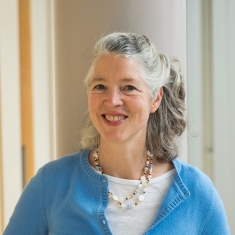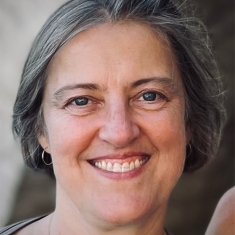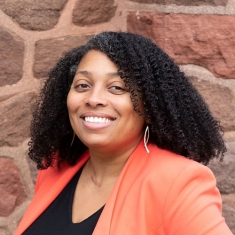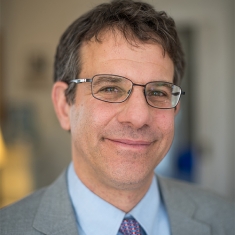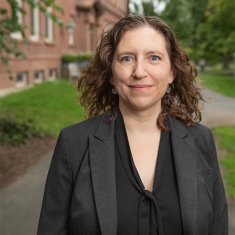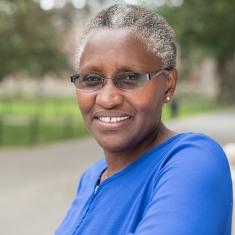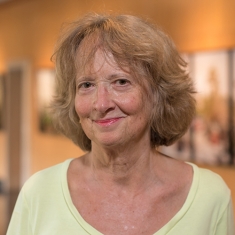Education and the study of learning touch every aspect of human activity. At the Smith College Department of Education and Child Study, we believe teaching and the study of how people learn are central to the health and future of our rapidly changing and diverse society. Preparing for a teaching career—which can include obtaining your MAT at Smith—is foremost among the reasons for studying education, but it can also be an important foundation for other fields, such as history, science, literature, business and counseling.
Since 1871, Smith College has been preparing teachers and educational leaders who understand what it takes to create classrooms where students learn to engage their world critically, imaginatively and reflectively. Alumni, faculty and students work on one of the most pressing social and human questions of our time: How can educators create settings where people can learn and flourish?
Announcements
Welcome to the Fall Semester!
- Understand the field of education from an array of disciplinary perspectives, i.e., philosophical, historical, sociological, psychological, statistical and ethical.
- Understand the role of cultural and human diversity in the design and practice of education.
- Understand current theories of learning and how they shape principles of pedagogical practice across ages and subject matter.
- Understand current theories of human development, from infancy through adolescence.
- Understand the major factors that influence the design of learning environments.
- Understand how education policy is shaped and how to change educational practice.
- Develop applied and practical knowledge and skill to support the growth and success of beginning teachers. (These learning goals are elaborated in the description of our state approved teacher preparation programs.)
Each student majoring in EDC, with the approval of their major adviser, elects a carefully planned program of course selections designed to meet the following requirements:
-
ten education courses including three foundations courses (breadth),
-
three courses in a single curricular strand (depth),
-
three elective courses, and
-
the senior capstone.
Students majoring in EDC will select one of three strands to organize the focus of their course work and learning:
-
Teaching and Learning (Including licensure option)
-
International/Global Education
-
Youth, Community and Policy Studies
*Additional courses are selected to best match the student's goals and interests.
Courses required for the major or minor in Education and Child Study may not be taken S/U.
Licensure Requirements
Students who are preparing to meet licensure requirements must design their major program so that it includes the prescribed set of courses and experiences described in Initial Licensure Requirements.
More Information
If you have questions about the major, please contact department chair Sam Intrator
A minor in education and child study consists of six semester courses chosen in consultation with an adviser in the Department of Education and Child Study. Courses required for the minor in Education and Child Study may not be taken S/U.
Many students, in consultation with their adviser, design a minor program that is tailored to their goals and interests. Students can meet minor requirements and also meet the requirements for teacher licensure by taking just two more courses required.
Teaching and Learning Strand
- EDC 110 Introduction to American Education
- EDC 212 Linguistics for Educators
- EDC 231 Foundations and Issues of Early Childhood Education
- EDC 238 Introduction to the Learning Sciences
- EDC 240 How Do We Know What Students Are Learning
- EDC 246 Colloquium in the Practice of Teaching
- EDC 311 Rethinking Equity and Teaching for English Language Learners
- EDC 336 Seminar in American Education
- EDC 338 Children Learning to Read
- EDC 343 Multicultural Education
- EDC 345D Elementary Curriculum and Methods
- EDC 346 Clinical Internship in Teaching
- EDC 347 Individual Differences Among Learners
- EDC 352 Methods of Instruction
- EDC 390 The Teaching of Science, Engineering and Technology
- ENG 399 Teaching Literature
- HST 390 Seminar: Teaching History
Youth, Community, and Policy Strand
- EDC 200 Critical Perspectives in Urban Education
- EDC 206 Statistical Literacy in Educational Research and Policy
- EDC 232 The American Middle School and High School
- EDC 235 Child and Adolescent Growth and Development
- EDC 239 Counseling Theory and Education
- EDC 331 The Stories Children Tell
- EDC 336 Seminar in American Education
- EDC 341 The Child in Modern Society
- EDC 342 Growing Up American: Adolescents and Their Educational Institutions
- EDC 343 Multicultural Education
International/Global Education Strand
-
EDC 226 The Making of a School
-
EDC 237 Comparative Education
EDC 278 Race and Education
FYS 184 Educating Women: A History and Sociology, at Home and Abroad
Capstone Course
-
EDC 340 Senior Colloquium
Advanced Courses
-
EDC 511 Rethinking Equity and Teaching for English Language Learners
-
EDC 548 Student Diversity and Classroom Teaching
- EDC 554 Knowing, Thinking and the Design of Learning Environments
- EDC 556 Learning in Classrooms
- EDC 559 Clinical Internship in Teaching
Special Studies and Honors
-
EDC 400 Special Studies
-
EDC 432D Honors Project
- EDC 580 Advanced Studies
Several courses that are required for teacher licensure have a fieldwork component. Students work in a school or community-based learning organization for three to four hours per week, and may be asked to tutor to fulfill this requirement and gain practice as a teacher.
Students will reflect on the topics covered in the corresponding course, possibly write journals or reflection papers regarding your time there and get an introduction to different learning environments.
Participating Schools
We use the local area public and private schools, such as the Smith College Campus School, as well as community-based learning sites, such as the ESL program at the Jones Library and Homework House in Holyoke.
Obtaining Your Teaching License
Smith College is an approved licensure provider in the state of Massachusetts. To be eligible for licensure in the state of Massachusetts while at Smith College, students must successfully complete the requirements of the teacher licensure program, pass the required Massachusetts Tests for Educator Licensure (MTEL) [fees apply], and submit licensure application materials and fees to the Massachusetts Department of Elementary and Secondary Education.The initial license earned in Massachusetts may transfer to other states, although additional requirements may exist. If students are interested in finding out more about licensure in a different state, they should contact the Coordinator of Teacher Education to set up an appointment.
Smith offers the following licenses to undergraduates:
-
Elementary, grades 1–6
-
Math/Science, grades 5–8
-
General Science, grades 5-8
-
History grades 5–12
-
English, grades 5–12
-
Foreign Language (French, Mandarin, or Spanish) grades 5-12
-
Mathematics, grades 8–12
-
Biology, grades 8–12
-
Physics, grades 8–12
-
Visual Art, grades PK-8
And we offer the following licenses to students pursuing a Master of Arts in Teaching:
-
Elementary 1-6
-
Humanities 5-8
-
Math/Science 5-8
-
Biology 8-12,
-
English 5-12
-
History 5-12
-
Mathematics 5-8
-
Mathematics 8-12
-
Physics 8-12
-
Political Science/Political Philosophy, 5-8, Political Science/Political Philosophy, 8-12
-
Foreign Language (French or Spanish) grades 5-12
-
Visual Arts PK-8
-
General Science 5-8
-
Social Science 5-12
-
Chemistry 8-12
-
Earth and Space Science 8-12
Create an ELAR Profile
We encourage students to create an ELAR (Educator Licensure and Recruitment) profile and get a MEPID number early in the program to track your progress. Having a profile during the program will help you keep track of any remaining requirements.
Massachusetts Tests for Educator Licensure (MTEL)
It is advised that all students take the Communication & Literacy Skills MTEL test as early as possible in the teacher licensure program. You should also plan ahead to ensure that you leave adequate time to complete subject-related tests.
Additional Tests for Elementary Level
For those students wanting to teach in the elementary level, you also need to take the Foundations of Reading MTEL during or just after EDC 338 Children Learning to Read. You will also need to take the General Curriculum Test, which has a math subtest and a multisubject subtest.
Check the Spinelli Center website for math workshops to help you prepare for the math subtest.
Additional Tests for Secondary Level
Students pursuing secondary teaching licenses also need to take the MTEL for their subject area(s).We suggest you take this test right after you complete your content courses.
Preparation
We hold a preparation workshop for the Communication & Literacy Test each fall and spring. Contact Lynn R. Dole for more information.
More Information
If you have questions about the licensure program, please contact Lynn R. Dole
Smith College offers Massachusetts initial licenses to undergraduate students. If you are interested in pursuing a teaching license, please contact Lynn R. Dole to schedule a meeting. Please bring an unofficial transcript, and your current course schedule.
Candidates must complete the following in order to obtain an initial license to teach in Massachusetts:
Elementary-Level Requirements
Candidates seeking elementary-level licensure—to teach first through sixth grade—must have the following:
- A bachelor’s degree with a major in education and child study and/or a major in another liberal arts or science discipline.
- Subject matter coursework in English (including literature, writing, and non-fiction texts), mathematics (must equal 9 credits), history (must include U.S. history and the study of a non-western culture), and laboratory science.
- The following professional knowledge requirements: EDC 235, EDC 238, EDC 338, EDC 347, EDC 311 (or 211) and EDC 345.
- Student-teaching experiences for both semesters of senior year. Students teach a minimum of 13.5 hours a week, most likely in two different schools and at two different grade levels.
- Passed the following MTEL exams: Communication and Literacy Skills (including reading and writing subtests), Foundations of Reading, Elementary General Curriculum (including mathematics and multisubject subtests).
Secondary-Level Licensure Requirements
Candidates seeking secondary-level licensure—to teach in middle and high school—must have:
- A bachelor’s degree in arts and sciences with a major in the area of the license you seek; choose from biology, physics, English, history, math, humanities (middle-school level only) and math and science (middle-school level only).
- The following professional knowledge requirements: EDC 232, EDC 238, EDC 342, EDC 347, EDC 352, EDC 311 (or 211) and EDC 346 (student teaching).
- Student-teaching full-time during the spring semester of senior year.
- Passed the following MTEL exams: Communication and Literacy Skills (including reading and writing subtests), as well as the appropriate subject-matter test.
Visit the Massachusetts Department of Elementary & Secondary Education for more information on how to prepare and register for Massachusetts Tests for Education Licensure (MTELs).
Elementary Program
Student teaching is a year long experience split into two distinct semesters; a pre-practicum semester, typically in the fall and a practicum semester, typically in the spring. In most cases, one semester will be spent at The Campus School of Smith College, and the other semester in a local public school.
During the pre-practicum semester you will enroll in EDC 345 Elementary Curriculum Methods, as well as any remaining core licensure courses; including, EDC 338 and EDC 347. You will be assigned a field placement and a host teacher to support the field requirements of these courses. You will also be assigned a Program Supervisor, who will meet with you at least three times during the semester to support your practice; observing you in the classroom, providing feedback and helping you set goals.
During the practicum semester you will enroll in EDC 345 Elementary Curriculum Methods. You will be assigned a practicum field placement and supervising practitioner (mentor teacher). You will continue to have the support of a Program Supervisor, who will formally observe you at least three times during the semester. You will be expected to complete 300 hours of field work, including at least 100 full responsibility hours.
Eligible candidates for the elementary educator licensure program must:
- Show appropriate progress in the program of study toward elementary educator licensure.
- Have successfully completed or are currently enrolled in three education and child study courses, including EDC 235 Child and Adolescent Growth and Development.
- Have earned grades of B- or better in all education and child study courses.
- Have a 3.0 grade point average.
- Meet with their department adviser or coordinator of teacher education to review progress toward elementary licensure.
Secondary Program
Student teaching is a year long experience split into two distinct semesters; a pre-practicum semester, typically in the fall, and a practicum semester, typically in the spring.
During the pre-practicum semester you will enroll in EDC 352 Methods of Instruction, as well as any remaining core licensure courses or major courses. You will be placed in a local middle school or high school to complete the field components of EDC 352.
During the practicum semester you will teach daily, usually from 7:30 a.m. to 2:30 p.m., following the schedule of the school where you are placed. You are encouraged to stay after school, on occasion, to meet with your cooperating teacher, work with their students, and attend school meetings and professional development training sessions.
Due to the demands of student teaching, students are encouraged to take only two courses during their student teaching semester:
- EDC 346 Clinical Internship (8 credits, which includes a weekly reflective seminar)
- A teaching course appropriate to the student’s desired subject or another course that does not conflict with the student teaching schedule. For those seeking an Education major you will enroll in EDC 340.
- Eligible candidates for the secondary educator licensure program must:
- Show appropriate progress in the program of study toward secondary educator licensure.
- Have successfully completed or are currently enrolled in three education and child study courses, including EDC 211 or 311 Rethinking Equity and Teaching for English Language Learners.
- Have earned grades of B- or better in all education and child study courses.
- Have a 3.0 grade point average.
- Meet with their department adviser or coordinator of teacher education to review progress toward secondary licensure.
Faculty
Master of Arts in Teaching
Smith College offers a master of arts in teaching degree for those pursuing teaching in elementary, middle or high schools as well as for students wishing to do advanced study in the field of education.
Resources & Partners
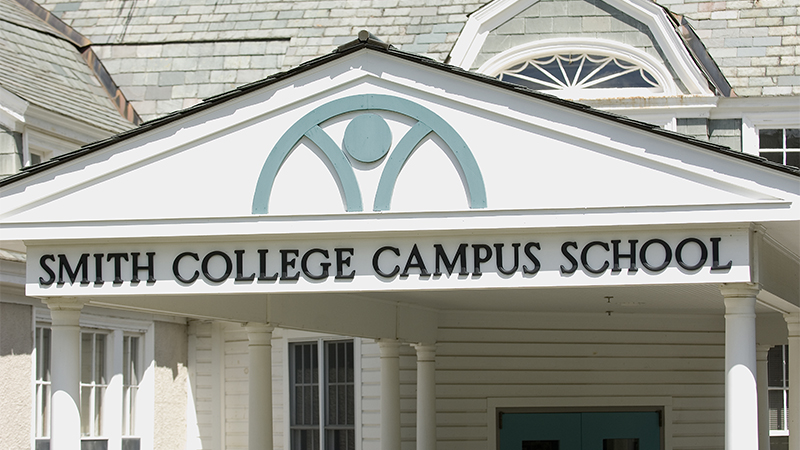
The Campus School of Smith College, founded in 1926, is the laboratory school for the Department of Education and Child Study at Smith College. Located at Gill Hall, the school serves children from kindergarten through sixth grade, with two classes at each grade level. The education of teachers was a stipulation in the will of Smith’s founder, Sophia Smith. Through the Campus School, students have many opportunities to work closely with faculty in a variety of real-world research and school-based projects, in addition to teacher training.
Campus School of Smith College
The Education Initiative is an innovative service learning program designed to prepare students to meet the crucial task of improving the quality of America's public schools. The initiative offers two programs: The Urban Education Pathway gives students real-world experience in New York City, Boston, Springfield, Chicago and other urban environments. The Project Coach program brings together Smith College undergraduate and graduate students to inspire and prepare Springfield teenagers to develop the capacity to be great coaches and mentors.
Learn more about the Education Initiative programs on the Jandon Center website.
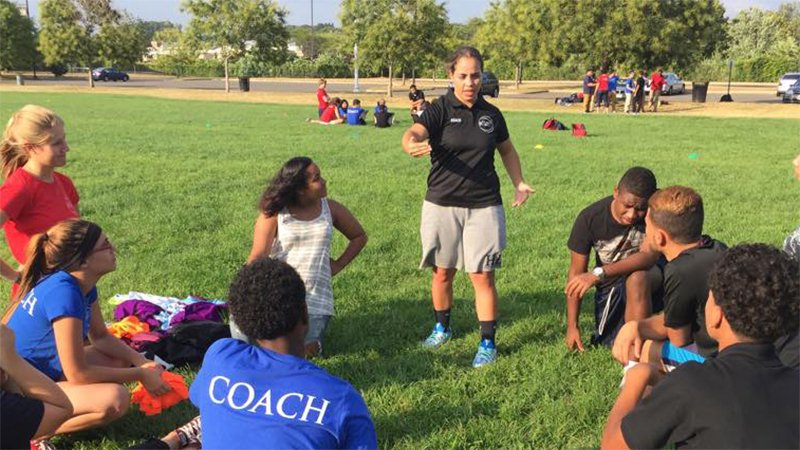
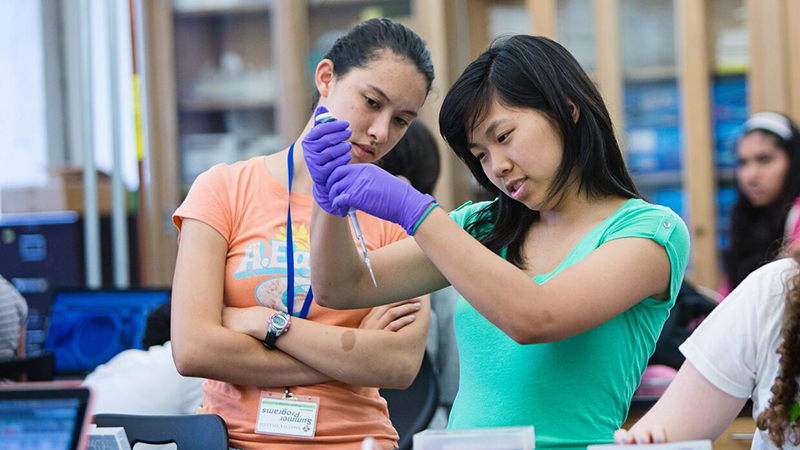
Smith College collaborates with the broader community on a wide variety of learning opportunities for both children and adults. Smith students can gain real-world teaching skills while delving more deeply into science, technology, engineering and mathematics subjects.
Learn more about Smith’s variety of STEM Outreach programs on the Jandon Center website.
One of the most important components of Smith’s education programs is clinical experience. The department strives to ensure that students work with the most talented master teachers at area public, private and charter schools. Some of the districts where we place student teachers, depending on their professional goals, include:

Contact
For more information about the Department of Education & Child Study, please contact Marjorie Postal. If you are interested in Teacher Licensure please contact Lynn R. Dole, Coordinator of Teacher Education.



